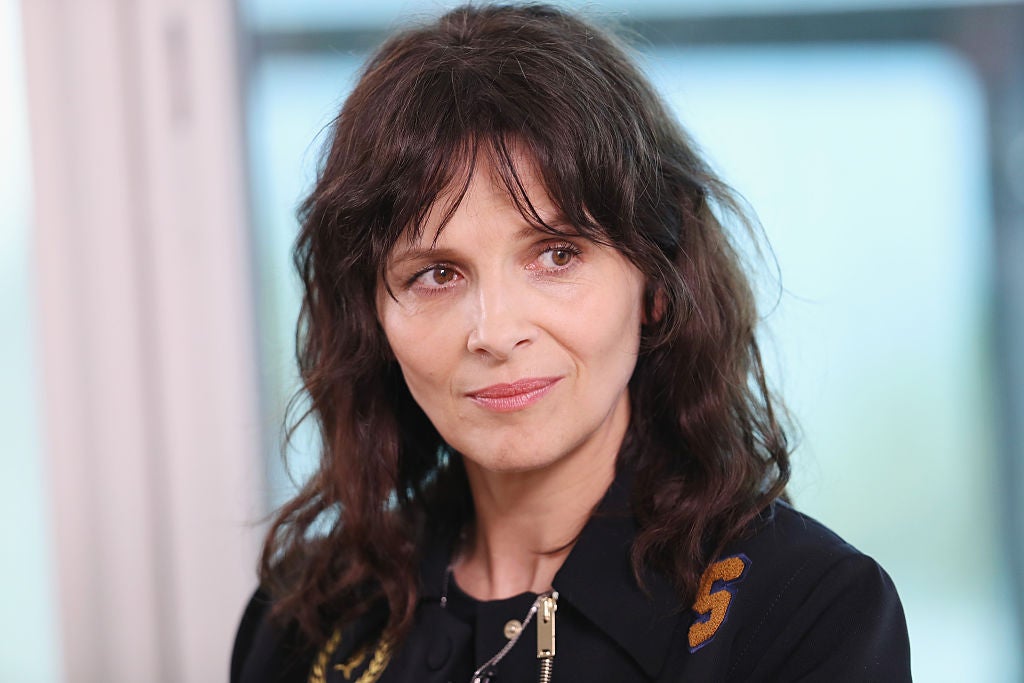Juliette Binoche confronted Scorsese and Spielberg over their failures to 'explore femininity' in film
'The feminine has to have its place. It needs space, and we don’t have the space, so we have to take it'

One of the many issues blocking women from claiming their rightful place on screen is a constant, wavering shift in responsibility.
We know there's blame to be had, but no one's quite certain as to who to point the finger at. The studios? The directors? The audiences? Of course, in reality, we're dealing far more with a system entrenched through an entire multitude of factors; a battle to be fought on all fronts, with every facet of the industry put under questioning.
One area in need of examining is the cinematic canon, the films cinephilic culture has enshrined as pinnacles of the art; and a canon which, though unfortunate decades of reinforcement, has leaned heavily towards the traditional notions of masculinity.
In Saving Private Ryan, Jaws, Raging Bull, or Taxi Driver; Martin Scorsese and Steven Spielberg have certainly always leaned towards the masculine, and in turn incidentally helped to impose those traditions.
A matter which Juliette Binoche won't stand idly by and witness; with the French Oscar winner telling attendants of a Cannes Film Festival panel session that she'd confronted both Spielberg and Scorsese over their lack of female leads (via The Guardian).
She recalled a conversation with Spielberg, who she greatly admires, in which the director did defend himself with the reasoning that he had made The Color Purple in 1985; yet, since then, he's never featured a solo female lead. Binoche even turned down Laura Dern's role in Jurassic Park; a fantastic character in itself, but hardly the focus of the film.
A similar conversation with Scorsese ended with her conclusion, "Saying no to certain films is as important as saying yes, because it really defines you," Binoche said. "[Scorsese] has a very feminine side of himself. But for me, he doesn’t explore it [in his work]."
Indeed, though the director is best known for his male leads in the likes of Mean Streets or The Wolf of Wall Street, one of his greatest, most consistently ignored works is The Age of Innocence; a masterful adaptation of Edith Wharton's tragic, romantic novel. It's a wonder whether Scorsese would have been moved to make more works in this vein of Age of Innocence had it received the same focus and attention as the likes of Casino.
Binoche did prove direct confrontation can move directors to embrace the feminine, with acclaimed French director Olivier Assayas moved enough by her argument for more female-focused films that he decided to make Clouds of Sils Maria. Binoche ending up starring alongside Kristen Stewart and Chloë Grace Moretz in the film, a beautifully poised meditation on the nature of acting, with Stewart going on to become the first American to win the César.

Watch Apple TV+ free for 7 day
New subscribers only. £8.99/mo. after free trial. Plan auto-renews until cancelled.
ADVERTISEMENT. If you sign up to this service we will earn commission. This revenue helps to fund journalism across The Independent.

Watch Apple TV+ free for 7 day
New subscribers only. £8.99/mo. after free trial. Plan auto-renews until cancelled.
ADVERTISEMENT. If you sign up to this service we will earn commission. This revenue helps to fund journalism across The Independent.
Binoche attended the talk on behalf of We Do It Together, a newly launched not-for-profit production company which aims to improve the opportunities for women in Hollywood; with Jessica Chastain, Queen Latifah, Freida Pinto, and Catherine Hardwicke also on board. The company took the opportunity to announce its first feature, Together Now: a collection of short films directed by international female directors.
"I felt the need to do something like this since very early on as an actress,” Binoche said of the project. "When you read scripts, you ask how you serve the story. Very early on, you see how you can be used. What I’ve been seeing is that I’ve been refusing roles, instinctively, out of the need to talk about the feminine. The feminine has to have its place. It needs space, and we don’t have the space, so we have to take it."
Join our commenting forum
Join thought-provoking conversations, follow other Independent readers and see their replies
Comments